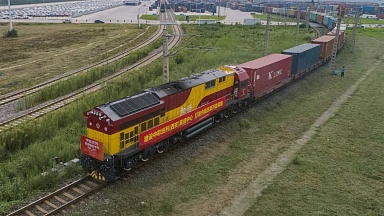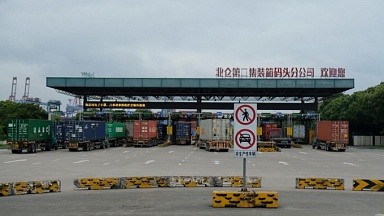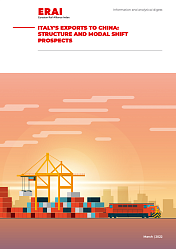The new terminal is part of the Belt and Road initiative and integral to the New International Land Sea Trade Corridor, which connects landlocked Chongqing by rail with Qinzhou in the west from where cargo can be shipped worldwide.
It is estimated that in the terminal’s first phase, annual capacity will be 1.02m teu; phase two, expected to be ready next year, will increase capacity to 2.62m teu with its two berths.
Beibu Gulf Port, which processed over 6m teu in 2021, is targeting annual handling of 10m teu by 2025.
The automated terminal is said to be the first of its kind, with a u-shaped process layout, enabling several tasks to be performed with minimal manpower.
The terminal uses automatic double-trolley quay cranes, reportedly at least 10% more efficient than conventional single-trolley units, while locally developed intelligent guided vehicles (IGVs) with cameras and sensors help carry containers between berth and storage yard. The IGVs can operate for four hours and require just 20 minutes of battery-charging time.
Guangxi Beibu Gulf Economic Zone deputy director Huang Wuhai said: «The terminal opening will significantly improve the capability and intelligence of Beibu Gulf Port, break the infrastructure bottleneck in ocean-going routes and help develop the New International Land Sea Trade Corridor.»




